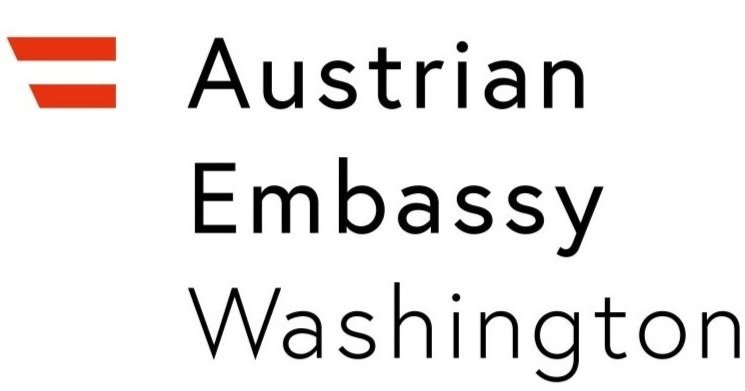Austria's Quantum Leap: FFG Advancing Quantum Science and Technology
Austria has long established itself as a leader in research and innovation. With a research and development expenditure of 3.34 % of GDP, the country ranks among the top global innovators and holds the position of a “Strong Innovator” in the European Innovation Scoreboard. The Austrian Research Promotion Agency (FFG) plays a crucial role in maintaining and expanding this success by fostering cutting-edge research and technological advancements. Especially in recent years, Austria's research efforts have increasingly focused on quantum science, with the FFG helping to advance innovation by funding multiple projects in this field.
Austria as a Hub for Innovation and Quantum Research
Quantum physics has a long-standing tradition in Austria and has seen a remarkable renaissance recently, highlighted by Anton Zeilinger's Nobel Prize. Quantum technology marks a paradigm shift, with the potential to revolutionize computing, communication, and sensing. We are currently in the midst of a second quantum revolution. The first quantum revolution gave us new rules that govern physical reality. The second quantum revolution will take these rules and use them to develop new technologies. Recognizing the significance of this field, the FFG has been actively supporting quantum research since as early as 2004, funding the Austrian Space Applications Programme (ASAP) project of Austria's pioneering quantum research center, the Institute for Quantum Optics and Quantum Information (IQOQI). Over the years, the agency has facilitated the development of Austria's quantum research ecosystem, not only by funding numerous projects but also by establishing key international collaborations.
FFG's Commitment to Quantum Research
Since 2014, fifty-three projects in quantum research and technology have been supported through FFG's standard portfolio, including ASAP, the Basic Program (EUREKA and Bridge), KIRAS, Information and Communication Technology (ICT) of the Future and European High Performance Computing (EuroHPC), as well as Research & Development Infrastructure programs and Spin-Off Fellowships. Additionally, the national quantum research program Quantum Research and Technology (QFTE/QuantERA) has funded twenty-five projects since 2017, fostering both national and transnational cooperation.
The Austrian government has reinforced its commitment to quantum research through the Quantum Austria initiative, backed by the European Recovery and Resilience Facility (RRF). Managed by the FFG and the Austrian Science Fund (FWF), Quantum Austria has allocated €107 million to quantum research and technology, with the FFG committing €80.83 million to thirty projects by the end of 2024. These projects focus on key areas such as quantum communication, quantum computing, and quantum sensing.
As of October 2024, the FFG has approved 128 projects with 259 participants, committing €116 million in funding to quantum science research.
Austria's Role in European and Transatlantic Quantum Research
Austria has played a key role in European quantum research programs. The FFG plays a key role here, it serves as the national contact point for European programs, facilitating Austrian participation in the great transnational programs Horizon 2020 and Horizon Europe. Under Horizon 2020, Austria secured €49 million in funding for fifty-four projects with seventy-five Austrian participations, mainly through the European Research Council (ERC), Future and Emerging Technologies (FET) Flagships, FET Open, and Marie Skłodowska-Curie Actions (MSCA) programs. Horizon Europe has further amplified these efforts, with Austrian entities participating in seventy-two projects, receiving €69 million in funding.
Additionally, Austria has contributed to EU-co-funded initiatives such as the ERA-Net QuantERA. Since 2017, ten projects with Austrian participation have received funding, with QuantERA III currently under evaluation by the European Commission. Austria is also involved in the European Digital Europe Programme, which supports the development of a quantum communication infrastructure (QCI-CAT). The FFG manages the national co-financing of this initiative through the Future Fund Austria (FZÖ).
Beyond Europe, Austrian quantum research maintains strong partnerships with leading institutions in the United States and Asia. Austrian researchers collaborate with leading quantum research centers such as Fraunhofer-Gesellschaft (Germany), the Laue-Langevin Institute (France), IBM Research (Switzerland), and the German Aerospace Centre (DLR). These collaborations are instrumental in advancing quantum computing, communication, and sensing technologies, ensuring Austria remains at the forefront of global quantum research.
Transforming Research into Technological Applications
Despite Austria's leadership in quantum science, the key challenge remains translating research breakthroughs into commercial applications. To bridge this gap, the FFG launched the Quantum to Market initiative in December 2024. This program, funded through the Future Fund Austria, supports industrial implementation and economic utilization of quantum technologies. With an initial budget of €4 million, the initiative focuses on key areas such as quantum sensing and quantum metrology.
Furthermore, the FFG has invested €5 million in Alpine Quantum Technologies GmbH (AQT), a leading Austrian company developing ion-trap-based quantum computers. This investment underscores Austria's commitment to establishing a strong industrial foothold in the quantum sector.
The Future of Quantum Science and Technology in Austria
Quantum science and technology have the potential to redefine industries, from secure communication and cryptography to ultra-precise sensing and high-performance computing. Austria's leadership in quantum research, supported by the FFG's strategic funding and international partnerships, ensures the country remains a major player in the global quantum landscape.
In the International Year of Quantum Science and Technology in 2025, Austria stands ready to showcase its pioneering contributions to the field. With continued investments and strong international collaborations, the FFG will continue to play a vital role in shaping the future of quantum innovation, strengthening Austria's position as a hub for cutting-edge scientific and technological advancements.
FFG Managing Directors Henrietta Egerth-Stadlhuber and Karin Tausz (from left to right)
Photo: FFG/EINZENBERGER


